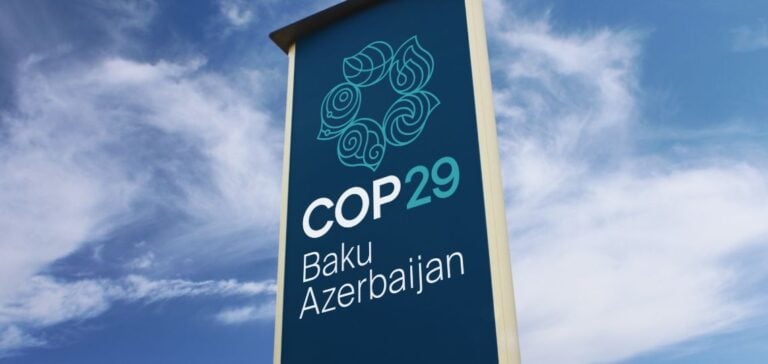The COP29 climate summit opened in Baku, Azerbaijan, with a sharp focus on energy issues. Azerbaijani President Ilham Aliev defended the rights of nations to utilize their natural resources, including oil and gas, in response to international expectations for carbon emissions reduction. Aliev described these resources as “gifts from God,” asserting their importance to the economies of many countries, especially given the current global energy context.
The Context of COP29 Negotiations
At COP29, the absence of several leaders from major world economies, including the United States, marked the discussions. Re-elected U.S. President Donald Trump was not present, though his envoy, John Podesta, attended to represent U.S. commitments. This situation has raised concerns about the credibility of U.S. pledges, particularly since Trump previously withdrew the country from the Paris Agreement.
On the other hand, UN Secretary-General Antonio Guterres emphasized the importance of increased financial support for developing countries. These nations are calling for a substantial increase in annual financial assistance, currently estimated at $116 billion per year. However, this demand faces resistance from Western nations that are currently aiming to reduce public spending.
Azerbaijan’s Energy Ambitions
Historically tied to the oil industry, Azerbaijan seeks to diversify its energy production while reinforcing its role in the natural gas market. President Aliev recalled that the European Union had requested Azerbaijan to increase gas exports during the 2022 energy crisis. This demand, he argued, demonstrates that the country’s fossil resources remain strategic to meet global energy needs.
Despite international pressure for a shift to renewable energies, Baku emphasizes the necessity for producing nations to ensure their economic development. According to Aliev, the exploitation of all resources, including wind and solar, should be encouraged without distinction.
A Mixed Response from the International Community
On the international stage, some European countries, including the United Kingdom, expressed their commitment to pursue climate goals despite current challenges. British Prime Minister Keir Starmer, one of the few G20 leaders present, announced new targets for reducing greenhouse gas emissions, emphasizing the importance of demonstrating climate leadership.
However, the European Union, represented by political figures such as Hungarian Prime Minister Viktor Orban and Polish President Andrzej Duda, remains divided over the extent of financial commitments to developing nations. Several major leaders, including Emmanuel Macron and Olaf Scholz, chose not to attend the conference, adding to the tensions.
A Contested Financing Proposal
On Tuesday, an initial draft financial agreement was rejected by the G77+China group, representing over one hundred developing nations. Ugandan negotiator Adonia Ayebare, president of the group, stated that the initial offer was insufficient to address the urgent needs of the Global South, which is among the most vulnerable to the effects of climate change. This reaction reflects growing dissatisfaction with the slow pace of financial progress and the commitments from developed countries.
The Stakes of Climate Diplomacy in 2024
As the conference continues, Azerbaijan hopes COP29 will underscore the importance of an inclusive approach that recognizes the specific needs of each country in the energy transition. The debates promise to be intense, with developing countries determined not to leave without tangible promises of support.
With more than 52,000 participants expected at the Olympic Stadium in Baku, COP29 is poised to be a key event for climate diplomacy, even though the absence of several leaders from major powers may limit the immediate impact of the negotiations.






















